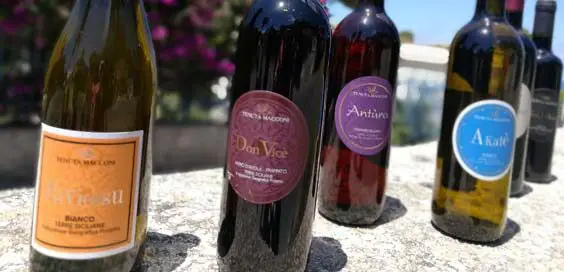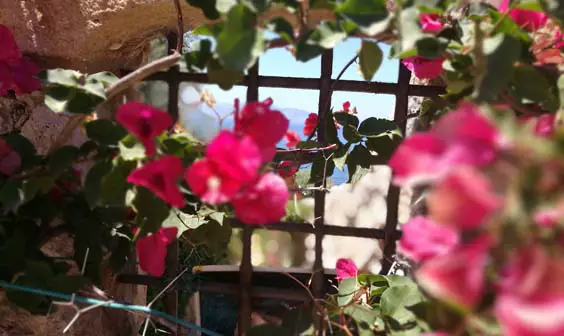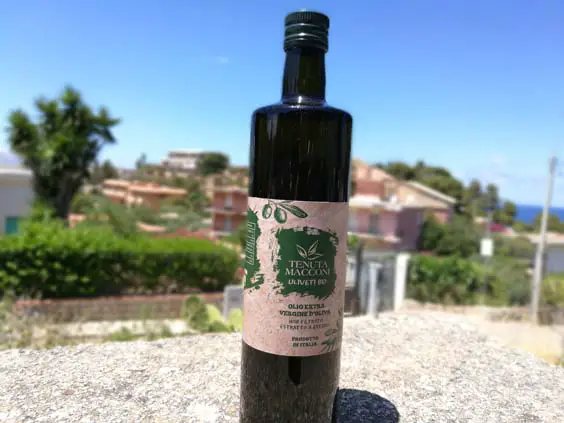Tentuta Macconi – Organic Farming the Sicilian Way

Tentuta Macconi – Organic Farming the Sicilian Way
Running an Organic Farm in Italy
One of the biggest challenges in modern agriculture is to regain the natural balance of a pre-industrial world. Since the start of urbanisation in the 1920s, cities all across the planet expanded with astonishing pace. To put it into perspective; in the 1960s, a third of the world’s population lived in cities. By 2014, that number was up to 54% (World Health Organisation) and the fastest-growing of these cities are mainly in the emerging economies of the world – the places where nature is not preserved as well as it is in the developed world.
With this migration to cities our planet has gone through a tremendous change. In turn, this has a massive effect on the food we eat. Deforestation and expansion of urban areas bring an imbalance to local ecologies and water supplies. Sustaining cities means drilling deeper wells and getting water from rural to urban regions, while pollution is an increasing problem in the area.
As such, re-creating a natural environment for organic foods to grow has become increasingly difficult, according to Francesco Scibota and Linda Galioto, the agricultural manager and marketing director at Tentua Macconi, an organic farm on the south coast of Sicily.
“When you run an organic farm, the biggest challenge is to re-create a natural eco system, but when you’re constantly facing a change, you are forced to adapt quickly”, says Galioto.
“Bees keep the trees clean and the parasites away”
To get around the problem, Tentuta Macconi has been applying a multi-purpose agricultural thinking ethos, combining different types of vegetation with bee breeding; a symbiosis that increases productivity in a natural way.
“We cannot use pesticides, so we’re having to re-create the overall environment. This is why we have citrus, olives, wine and bees. For example, parasites will suck the juice from the trees and destroy it, but bees will keep the tree clean and keep the parasites away,” says Scibota.
To create the natural habitat for the vegetation, farmers have to know the balance between various insects and environmental changes. To do that, they often farm their own insects which balance out the overall environment, creating an organic space for the citrus olives and potatoes while the bees pollinate the surrounding trees and produce clean honey.
This eco-preservation is a way to protect the authentic trees and species that are best accustomed to the environment. The bees, which are black and have little similarity with the classic yellow-striped stereotype, are, in fact, African bees. Having lived on the Sicilian islands for thousands of years, it is one of the oldest species in the area and they have been around longer that Sicily itself. When this little piece of land separated from the massive African continent, the bees found little reason to move and followed the ground along as it drifted off to the middle of the Mediterranean Sea.
“The farm now also makes honey, wine and olive oil”
With recent climate change and the massive increase of the yellow striped honey bees, the Sicilian black bee has now significantly decreased in numbers, giving reasons to fear an extinction of the species. According to the Sicilian Bee Organisation the disappearance of this one species will have a tremendous impact on local production and the world environment.
This makes it even more important for the Tentua Macconi team to use the farm in a way that creates the best environment for all species. To do that, they decided to turn their initial citrus plantation into an organic farm. This involved introducing the bees and starting a completely fresh olive and vine plantation. While it may seem that this expansion brings more work, it has actually made the farm more balanced and productive. Instead of solely relying on the citrus, which Sicily has famously been dependent on for hundreds of years, the farm now also makes honey, wine and olive oil, completing a dining table from starters through to desserts.
According to the Tenutta Macconi team, this has massively improved the quality of the produce. Bees collect nectar from all the surrounding trees, including almond citrus and eucalyptus and, through that, produce honey with a higher amount of antioxidants than bees bred in a traditional environment, according to the research done at the University of Naples. They also maintain the humidity on the increasingly arid terrain, allowing for other trees to grow and flourish.
“Important to preserve the main qualities of nature”
Planting their first olive tree fifteen years ago, they have recently produced their first batch of olive oil. They completely sold out during their first trade show, but kept a few bottles for Keighley, feeling very exited to bring them to a place they never been to before.
“As this is our first crop, we only have a limited amount of oil,” says Galioto while holding the last two bottles in her hands.
“We could produce a lot more if we use hot extraction, but that would reduce the quality of the product. We choose to produce less but make sure that we maintain our standards,” says Scibota as he looks through a list of orders to be shipped to independent shops all over Europe.
Olive oil is produced through mechanical extractions and the temperatures vary between 21 to 35 degrees Celsius. The higher the temperature, the more oil is produced from a crop. But similarly to cooking oil in a pan, heat destroys the taste. This is why Tentuta Macconi choose to keep the extraction cold, even if that means that their supply is lower than their demand.
“We do cold extractions and we don’t filter our oil, because we think that it’s important to preserve the main qualities of nature. We want to preserve the main qualities of the olives and that’s why we choose not to filter it. That way, we keep the taste of our farm in every single bottle,” says Scibota.
“We’re having to adapt very quickly”
But running a completely organic farm comes at a cost. Last year it spent 300.000 Euros. This included insect cultivation, the growth of ‘fava beans’ that are used as natural fertiliser and cutting back the trees to keep a natural shape of the authentic environment. A big part of the cost included water pumps, to battle the water supply shortage.
“In 2015, we only had three days of rain and it’s an increasing problem. We know the nature quite well. For example, when we see the plants dry in the morning, we know what sort of support they need, what parasites are likely to turn up and how to deal with them. But when things change all the time, we’re having to adapt very quickly,” says Scibota.
While clean and plain fields might be shrinking as urban areas expand, the demand for organic food is certainly not. According to Tesco and Ocado, average sales increased by 15% in the last year. But this growth comes in parallel with the environmental change, making it more difficult to sustain the natural balance. With this shift in trends and nature, the question remains what is the priority, and whether we can keep the environment on the level for our increasing passion for natural food.
tenutamacconi.it
info@tenutamacconi.it











